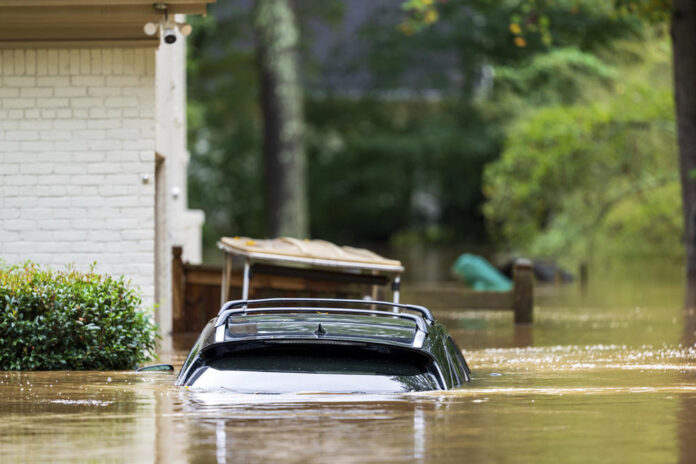According to a recent research, Georgia should establish a governmental office to prepare for the consequences of climate change.
However, the report published on August 4 by the Pew Trusts and the University of Georgia’s Institute for Resilient Infrastructure Systems (IRIS) barely mentions climate change.
It asks on Georgia to strengthen its resilience measures and highlights what neighboring South Carolina is doing at its Office of Resilience, echoing recommendations made in a study written for state lawmakers in late 2024 following the deadly storms Debby and Helene.
Resilience in the context of climate change refers to preventing and recovering from natural disasters such as flooding, drought, severe temperatures, wildfires, and others.
However, it doesn’t specifically address climate change.
The director of the South Carolina Office of Resilience, Eric Fossmeyer, refers to it as the “elephant in the room.”
According to Fossmeyer, the term “climate change” has become highly politicized. And we simply advise people to have an apolitical stance while approaching it.
Speaking at a workshop discussing the study before to its publication, Fossmeyer emphasized that the evidence regarding the frequency of natural disasters is unambiguous.
According to the survey, Georgia has already seen more significant natural catastrophes in the last five years than it had in the two decades prior.
“Everyone is affected by those disasters,” he stated. Which political party you belong to is irrelevant. It makes no difference what race you are. Everyone is impacted. And that turned into a strong argument in favor of our resilience planning initiative.
VIEW THE WHOLE REPORTGA Statewide Resilience Assessment HERE
In Georgia, who would need to be convinced of resilience? For example, state legislators.
In addition to funding other priorities, the General Assembly would need to approve and fund a resilience office.
According to its fiscal year 2025–2026 budget, South Carolina’s Office of Resilience costs the state $126 million annually, yet $40 million of that number seems to be one-time expenses associated with Hurricane Helene.
According to the analysis, investing in resilience averts future disaster recovery.
According to the analysis, the upfront expenses of proactive expenditures in hazard prevention are still greatly outweighed by the total cost of catastrophe recovery.
The U.S. Chamber of Commerce claims that governments save $13 in disaster recovery for every dollar invested in resilience.
Investing in human employment necessary to coordinate all the components of resilience, purchasing properties in places that flood frequently, and improving stormwater are a few examples of resilience spending.
For Fossmeyer, data is a major concern.
Although billions of dollars are being spent on infrastructure projects related to stormwater, he added, these projects are based on storm data and other data that is long out of date.
However, in order to provide high-quality data, some entity and financing are needed.
Brian Bledsoe, the director of IRIS, stated during the same workshop that there is a great appetite for state-level coordination and leadership.
He claimed that the 15 in-person and virtual sessions IRIS held throughout the state to create the report served as the basis for his opinion.
Here in Georgia, he added, we are at a pivotal point where everything appears to be in place and it is time to bring the disparate parts together in a unified manner.
A state Office of Resilience should be administratively affiliated with the Georgia Emergency Management and Homeland Security Agency, according to the 2024 Georgia House of Representatives report.
The IRIS-Pew report doesn’t go into great detail about how lawmakers should put its recommendations into practice.
There is only one mention of climate change in its 137 pages (excluding footnote titles) and that is in a section that lists the Atlanta Regional Commission’s resilience target areas.
Scientists caution that extreme weather is becoming more frequent and severe due to climate change, which is mostly brought on by the combustion of fossil fuels.
Although most Americans agree that the government should be heavily involved in disaster relief and mitigation, there is less agreement, according to a recent poll, on whether the government should be active in the fight against climate change.
This content was brought to Now Habersham by GPB News. This report was contributed to by the Associated Press.












